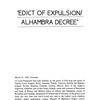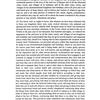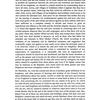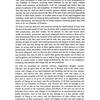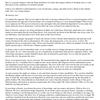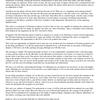2: Edict of Expulsion, 1492, and David Raphael’s fictionalized response from Isaac Abarbanel, 1988.
Building on efforts by the Catholic Church to strengthen and expand its power, the Inquisition was established in 1478 to root out and punish heretics, blasphemers, or otherwise unfaithful Catholics, especially those who had converted from Judaism or Islam. The culmination of over a century of persecution, violence, and forced conversions, the Edict of Expulsion (also known as the Alhambra Decree, after the Granada palace where it was signed) was signed by the Catholic monarchs of a newly united Spain, King Ferdinand and Queen Isabella, on March 31, 1492.
Suggested Activities: Read over the text of the Edict of Expulsion. What exactly are Jews being accused of, and what do the monarchs see as the solution?
After reading the Edict, read David Raphael’s fictionalized response by the historical figure Isaac Abarbanel, an important Jewish leader and philosopher active at the time of the expulsion. How does Abarbanel, in Raphael’s imaginative piece, argue against the Edict? What are his feelings about Spain, and how can you tell? What else might you add to or change in his response, if you were responding yourself?
Next, listen to “Adio Kerida” once again as a class, and review the English translation of the lyrics. Ask students to reconsider the question of whether the song might be a message from Jews to Spain. How does reading the Edict of Expulsion and the Raphael excerpt add to their understanding and interpretation of the song?
Finally, have students reflect about the advantages and disadvantages of learning about history through historical, primary sources and through fictionalized ones. What did they learn from reading the Edict? What did they learn from reading Raphael’s fictionalized response?
Sources: Edward Peters. "Jewish History and Gentile Memory: The Expulsion of 1492." Jewish History 9, no. 1 (1995): 24–28. Accessed May 21, 2020. www.jstor.org/stable/20101210.
David Raphael, The Alhambra Decree (El Decreto de la Alhambra) (California, Carmi House Press, 1988).
n.b. There are multiple spellings of the name Isaac Abarbanel, and one of the variations is used in the second resource.
Edict of Expulsion 1
 Download image (204.45 KB)
Download image (204.45 KB) Edict of Expulsion 2
 Download image (801.62 KB)
Download image (801.62 KB) Edict of Expulsion 3
 Download image (818.16 KB)
Download image (818.16 KB) Edict of Expulsion 4
 Download image (800.62 KB)
Download image (800.62 KB) Edict of Expulsion 5
 Download image (138.26 KB)
Download image (138.26 KB) Isaac Abarbanel 1
 Download image (1.04 MB)
Download image (1.04 MB) Isaac Abarbanel 2
 Download image (1.16 MB)
Download image (1.16 MB)

